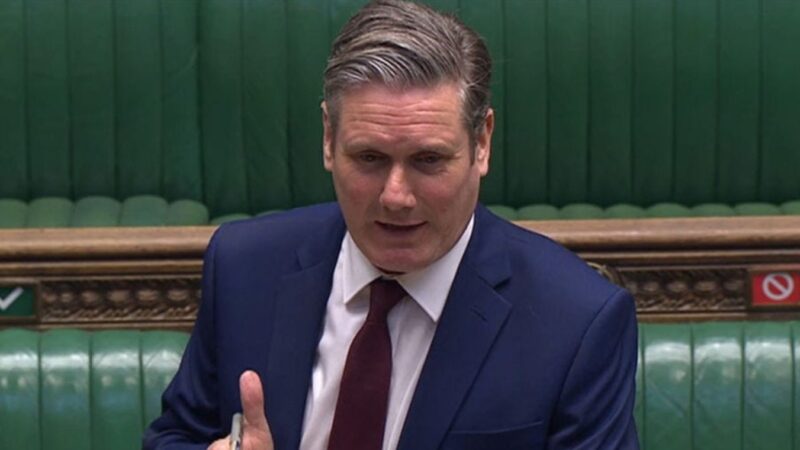Almost no one wants the economy to return to how it was pre-pandemic. What's Keir Starmer's vision?

As the pandemic wages warfare on our already unstable economy, Boris Johnson has delivered relief to working people with a furlough scheme, freeze on rental evictions and a more accessible universal credit system. Yet these policies do not go far enough – and all eyes are on Labour and the Leader of the Opposition to be bold.
Unfortunately, a risk-averse Keir Starmer has done little to promote radical measures to overcome the pandemic and reform the economic system. Labour members and trade unionists are exasperated with his non-committal stance towards the ten pledges he put to the party rank-and-file for a successful leadership bid.
Starmer promised to strengthen workers’ rights and ties with trade unions, abolish universal credit for a more just system, increase tax for the top 5% of earners and support common ownership of key services. These measures became urgent once the virus shut down our economy and left workers in even more precarious conditions. Starmernomics, enshrined in Starmer’s image as leader for all, has not taken off.
Starmer has remained coy on the policies he wants for Labour, refusing to commit until nearer the 2024 election. And while he’s dithers in his approach, trade unions are contemplating withholding funding from the party or disassociating themselves entirely. This would be a huge push back on Labour’s support for working people and a searing rebuke to Starmer’s leadership.
At his first conference as leader, Starmer endorsed family values and security to tacitly gain traction in former Red Wall seats that voted Tory for the first time. A progressive ‘levelling-up’ agenda would certainly be more a bold vision for communities across the North and Midlands who are disillusioned with the status quo of politics. The rejuvenation of their towns through the nationalisation of key services, a bustling high street, mass employment programs and increased powers to local councils would suffice.
A YouGov poll conducted last year found that only 6% of voters wanted the economy to return to its pre-pandemic model. Meanwhile, the majority of voters back policies such as rent controls and a universal basic income. The response from Stamer? Silence.
In unprecedented times, working people across the nation are looking towards the Conservative party to hear of policies that will help them. The Labour Party, once a bastion of the working-class household, instead prioritises a rigorous assessment of the government’s incompetence – but does not provide an alternative. The Starmernomics that many hoped for and certainly one that would firmly counter Johnsonim has not materialised.
For Labour to be a government-in-waiting, bold policies are needed to the public sphere so an economy post-Covid is one that works for all. These include the common ownership of all key services and utilities, a green industrial revolution to bring people back into work whilst tackling the climate crisis, and a wealth tax to alleviate the struggles of those in poverty.
Starmer’s past remarks of a fair and equal economic system must be put at the forefront to show him an impassioned and confident leader. The pandemic has truly revealed the stark inequalities that the nation faces; from wealth disparity to a fractured union.
A Labour party dedicated to eradicating the plight of the working-class should be a defining feature of Starmerism. Without it, a Tory party led by Johnson will be left undefeated.
Liam Barrett is a Constituency Labour Party Youth Officer. He tweets here.
To reach hundreds of thousands of new readers we need to grow our donor base substantially.
That's why in 2024, we are seeking to generate 150 additional regular donors to support Left Foot Forward's work.
We still need another 117 people to donate to hit the target. You can help. Donate today.



